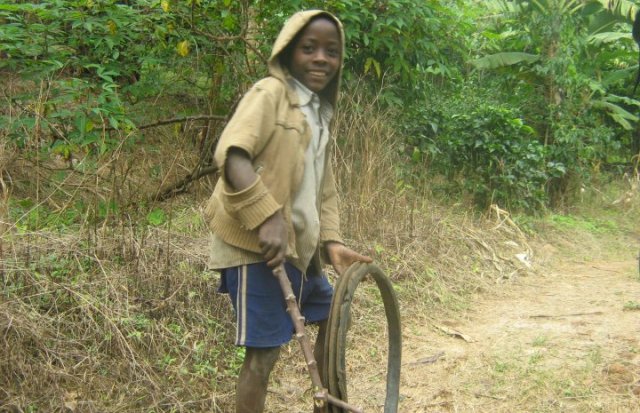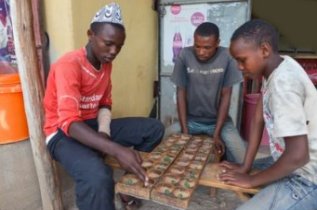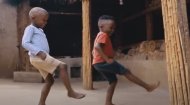|
|
|


Cultural Origins of African GamesBeyond board games, a wealth of physical games reflect the athleticism, agility, and communal spirit of African societies. Nuba Wrestling from Sudan, for instance, is not just a sport but a vital part of seasonal festivals and rites of passage. Young men demonstrate their strength, skill, and courage, with victories often bestowing prestige and respect within the community. Similarly, stick fighting, practised in various forms across the continent (such as the Donga among the Suri of Ethiopia or forms in South Africa), serves as training for warriors, a means of settling disputes, and a form of entertainment, emphasising discipline, agility, and defensive techniques. Jumping games like various forms of rope skipping, often accompanied by rhythmic songs and chants, are common among children, promoting coordination, endurance, and teamwork. Traditional ball games, where balls were creatively crafted from natural materials like woven grass, animal hides, or plant fibres, taught children about cooperation, spatial awareness, and physical dexterity. These games often involved intricate rules and fostered a strong sense of collective play rather than individual stardom. Furthermore, storytelling and riddling games played a crucial role in cultural transmission. While not "athletic" in nature, these verbal games were essential for teaching history, ethics, problem-solving, and creative thinking. Elders would pose riddles or initiate narrative chains, encouraging younger generations to engage their minds, understand cultural metaphors, and develop strong oral communication skills. These sessions often took place around a fire, strengthening inter-generational bonds and communal identity. The cultural origins of these games are deeply interwoven with the fabric of African life:
In an increasingly globalised world, many traditional African games face the challenge of fading into obscurity, overshadowed by modern electronic entertainment. However, there are growing efforts by cultural enthusiasts, educators, and communities to revive, document, and promote these invaluable facets of African heritage. By understanding and celebrating these games, we not only preserve a rich cultural legacy but also gain insight into the profound wisdom and ingenuity of the African people. You can play some traditional African games above or visit our sister site to for a wider selection of games to play online here. |
 Known by countless names such as Bao (East Africa, particularly Zanzibar), Awele or Oware (West Africa, particularly Ghana and Côte d'Ivoire), Omweso (Uganda), and Kalah (often a simplified version), Mancala games are played on boards with rows of pits, into which seeds, beans, or stones are distributed and "sown." The objective typically involves capturing more seeds than one's opponent through strategic movements.
Known by countless names such as Bao (East Africa, particularly Zanzibar), Awele or Oware (West Africa, particularly Ghana and Côte d'Ivoire), Omweso (Uganda), and Kalah (often a simplified version), Mancala games are played on boards with rows of pits, into which seeds, beans, or stones are distributed and "sown." The objective typically involves capturing more seeds than one's opponent through strategic movements.








